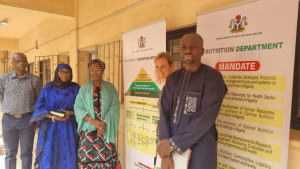In 2022, the number of malaria cases rises to 249 million, an increase of 5 million compared to 2021. The Africa region accounts for about 94% of these cases, with 27% reported in Nigeria.

Malaria is still causing a high number of deaths worldwide!
In 2022, 608,000 malaria-related deaths were reported, with 87% of these affecting children under 5 years old. About 96% of global malaria deaths occurred in Africa, with Nigeria representing 31%.
In addition to children under 5 years old, pregnant women are highly affected by malaria case incidence. In Africa, over one-third of pregnancies (35.4 million) were exposed to malaria infection, resulting in approximately 12.7 million cases.
Read more in the last World Malaria Report 2023
To face this incidence, Nigeria has implemented IPTp (Intermittent Preventive Treatment during pregnancy) to prevent the burden of malaria during pregnancy. However, the coverage of women attending ANC (antenatal care) visits, during which they should receive three doses of IPTp, remains below 80%, resulting in low IPTp coverage and increased risks associated with malaria infection during pregnancy, including maternal anemia, stillbirth, preterm birth, low birth weight, and mortality.
By integrating nutrition with health-related interventions aimed at ending malaria, we have the potential to boost the attendance of pregnant women at ANC visits, increase IPTp coverage, and consequently reduce the associated risks of malaria while simultaneously enhancing their nutritional status! Access to the SMC study in Burkina Faso
Together, we can take significant steps towards a healthier, malaria-free Nigeria.
Thanks to Ope Abegunde and Timothy Obot from NMEC; Dr. Godwin Ntadom and Dr. Nnenna Ogbulafor from NMEP, L.K. Bako Aiyegusi and Iliya Musa Soke from Nutrition Dept MoH, for their welcome and the insightful discussions we shared.